
THE WISDOM ACADEMY PRESENTS
Freedom through Correct Knowing
An online course with Geshe Tenzin Namdak

Renowned teacher Geshe Tenzin Namdak explores how the mind shapes perceptions into an understanding of what we perceive, and the possibility of radical positive transformation.
Tuition: $397
Materials remain accessible to enrolled students so you can return to them again and again!
Wisdom is a 501(c)(3) nonprofit. Your tuition supports the creation of more courses like this one. Thank you!
For more about our terms, please see the Wisdom Academy FAQ.
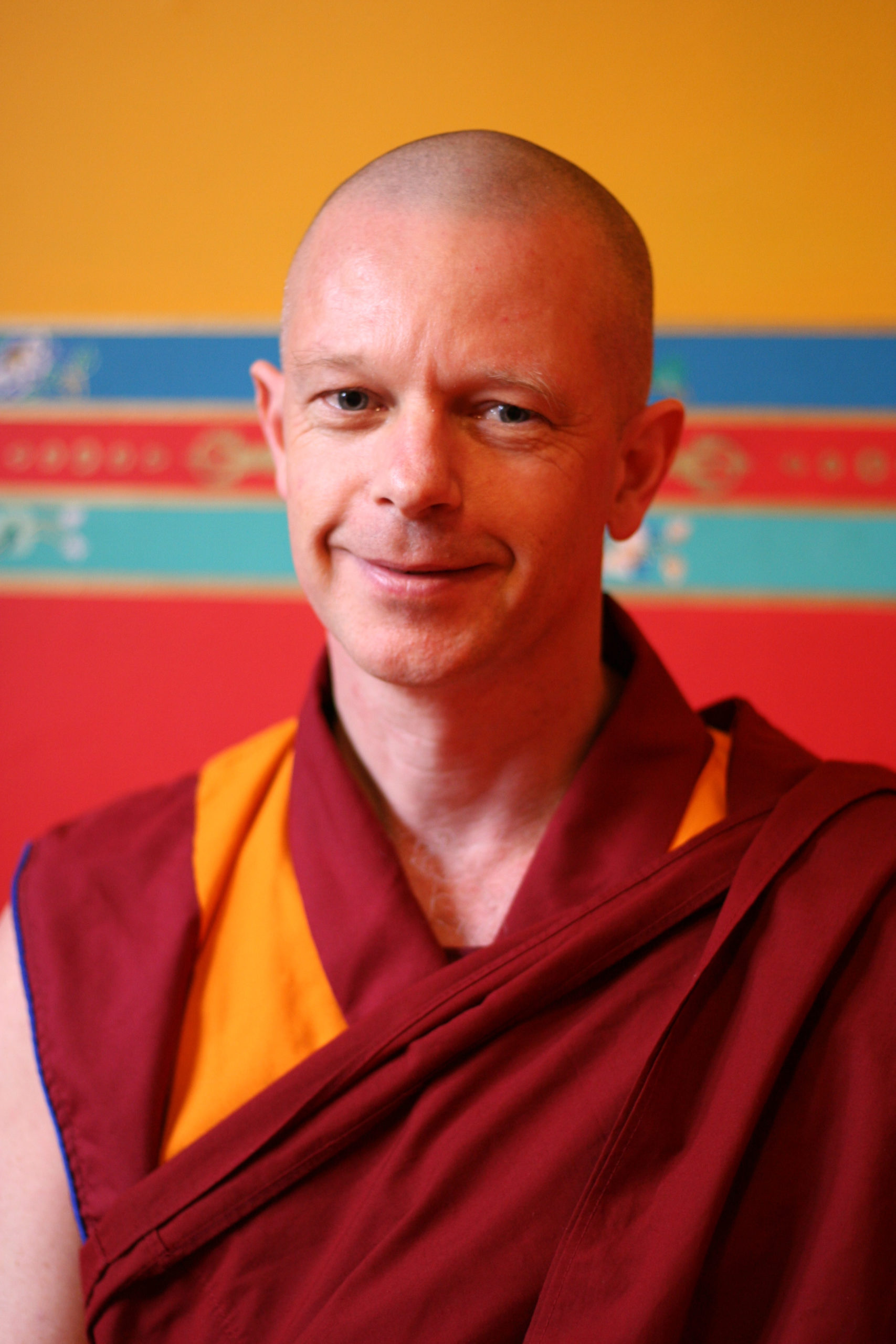
How do we perceive the world and how does our mind shape those perceptions into an understanding of what we perceive?
In this course, Geshe Tenzin Namdak explains these essential aspects of our minds and helps us to eliminate distorted perceptions, realize ultimate reality, and attain the paths to liberation and enlightenment.
Exploring these ideas helps us to see the infinite potential of consciousness, and generates a deep conviction in the possibility of radical positive transformation.
You’ll learn how a mind realizes its object, which types of consciousness realize their objects, and when a consciousness is considered to be valid in the sense of realizing its object.
Having explained inference and yogic direct perceivers, which are essential to understanding the four noble truths, Geshe Namdak offers a lucid presentation of how to progress on the spiritual paths of liberation and enlightenment. With this, one can learn to develop an unmistaken realization of the fundamental reality, which eliminates the root cause of all samsaric suffering.
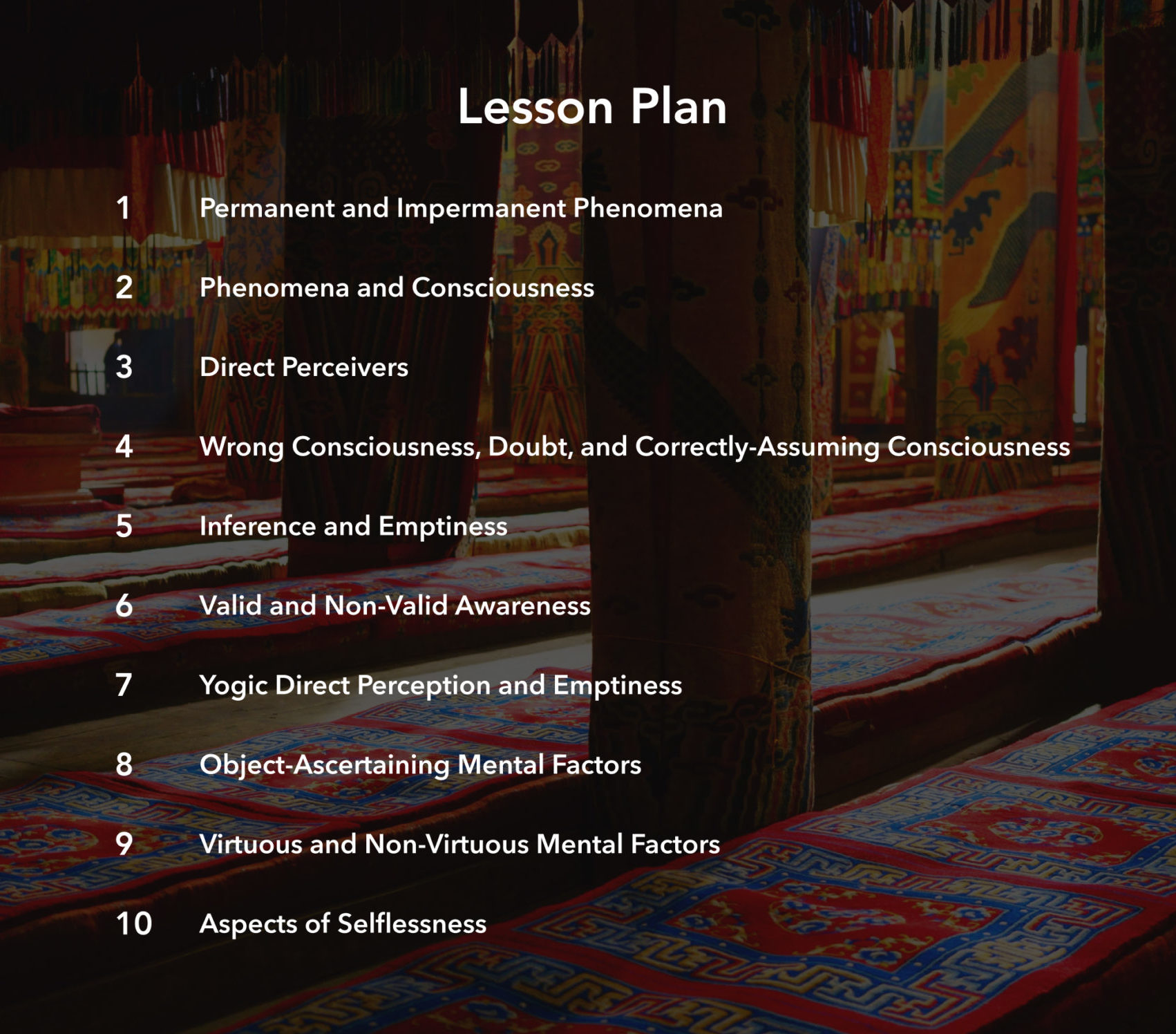
Scroll down for more information, or click the button to enroll now!
• How much does it cost? Tuition is $397. Your tuition fee helps support Wisdom’s nonprofit mission so we can create more amazing courses for you!
• When does the course start? This course is in self-study mode so you can enroll at any time and take the course at your own pace.
• Will I lose access? No, you will retain access even after the last lesson has been released so you can return to the teachings whenever you like!
• Are there any live components? No.
For more about our terms, please see the Wisdom Academy FAQ.
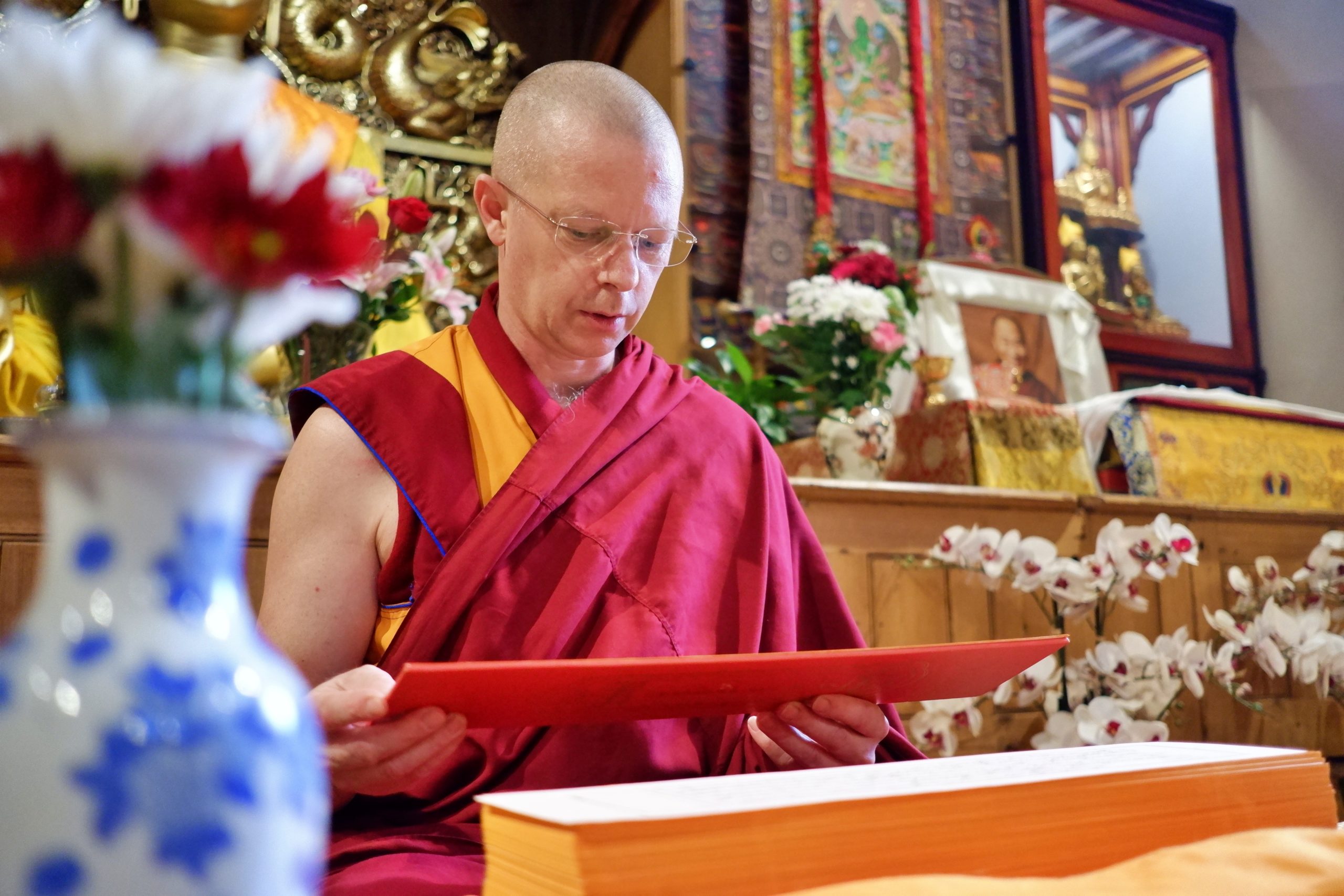

Lesson 1: Permanent and Impermanent Phenomena
Geshe Tenzin Namdak looks at the definition and main features of mind in both the Buddhist and scientific perspectives. To understand the various states of consciousness, it is important first to understand the objects that appear to our mind.

Lesson 2: Phenomena and Consciousness
Geshe Namdak presents manifest and varieties of hidden phenomena, and the underlying understanding conceptual consciousnesses and nonconceptual consciousnesses that realize them.

Lesson 3: Direct Perceivers
This lesson explores direct perceivers, and the varieties of direct perceivers such as yogic direct perception.

Lesson 4: Wrong Consciousness, Doubt, and Correctly-Assuming Consciousness
Geshe Namdak unpacks the various divisions of consciousness, the most common of which being the division into seven.
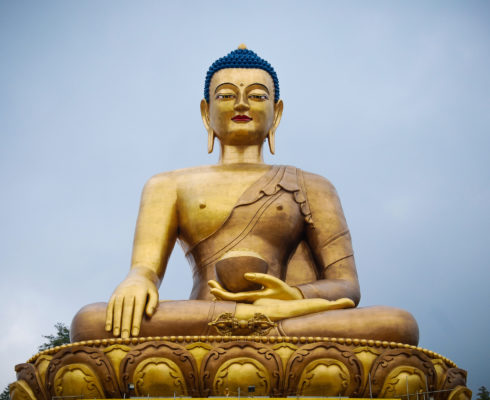
Lesson 5: Inference and Emptiness
Geshe Namdak explains the definition of inference and its divisions, as well as how we initially realize selflessness, emptiness, the ultimate nature of reality.

Lesson 6: Valid and Non-Valid Awareness
Awareness can be divided into valid and non-valid, and consciousnesses can realize their object in an explicit or implicit manner; it is crucial to know when a consciousness is valid or not.

Lesson 7: Yogic Direct Perception and Emptiness
To understand how to proceed on spiritual paths, it is important to have the map of the journey. This section explains the grounds and paths: what needs to be abandoned, and what needs to be accumulated.

Lesson 8: Object-Ascertaining Mental Factors
The division of consciousness into main minds and mental factors facilitates understanding of how different aspects of mental factors aid us to appreciate experience, engage objects in harmful, helpful, and neutral ways, and how we ascertain and realize objects.

Lesson 9: Virtuous and Non-Virtuous Mental Factors
Through becoming skilled in the classifications of virtue and non-virtue, the afflictions can be immediately recognized and overcome with the antidotes.

Lesson 10: Aspects of Selflessness
Geshe Namdak explains interpretations of the different philosophical schools on what selflessness of persons and phenomena means.

Your Course Includes
Ten video teachings with Geshe Tenzin Namdak
Ten guided audio meditations
A study guide created by Geshe Tenzin Namdak, to accompany the book Freedom through Correct Knowing
Readings from the book Freedom through Correct Knowing
Short quizzes to test your knowledge
A forum for student discussion, with moderators posing questions and providing answers
This course is based on Freedom through Correct Knowing, On Khedrup Je’s Interpretation of Dharmakirti’s Seven Treatises on Valid Cognition, translated and commentary by the Sera Jey Monastic University Translation Department, edited by Geshe Tenzin Namdak and Ven. Tenzin Legtsok.
1. If you want the opportunity to study with a highly respected and profoundly qualified teacher who is the first Westerner to complete the twenty-year-long Geshe degree at Sera Je Monastic University, and who is known for his ability to combine traditional Buddhist monastic education with a modern Western sensibility.
2. If you want to explore a Geluk presentation on valid cognition in the epistemological tradition of Dignāga and Dharmakīrti, which is a crucial component of Tibetan Buddhist monastic education.
3. If you want to learn how to rigorously train and understand your mind so that you can see reality more clearly.

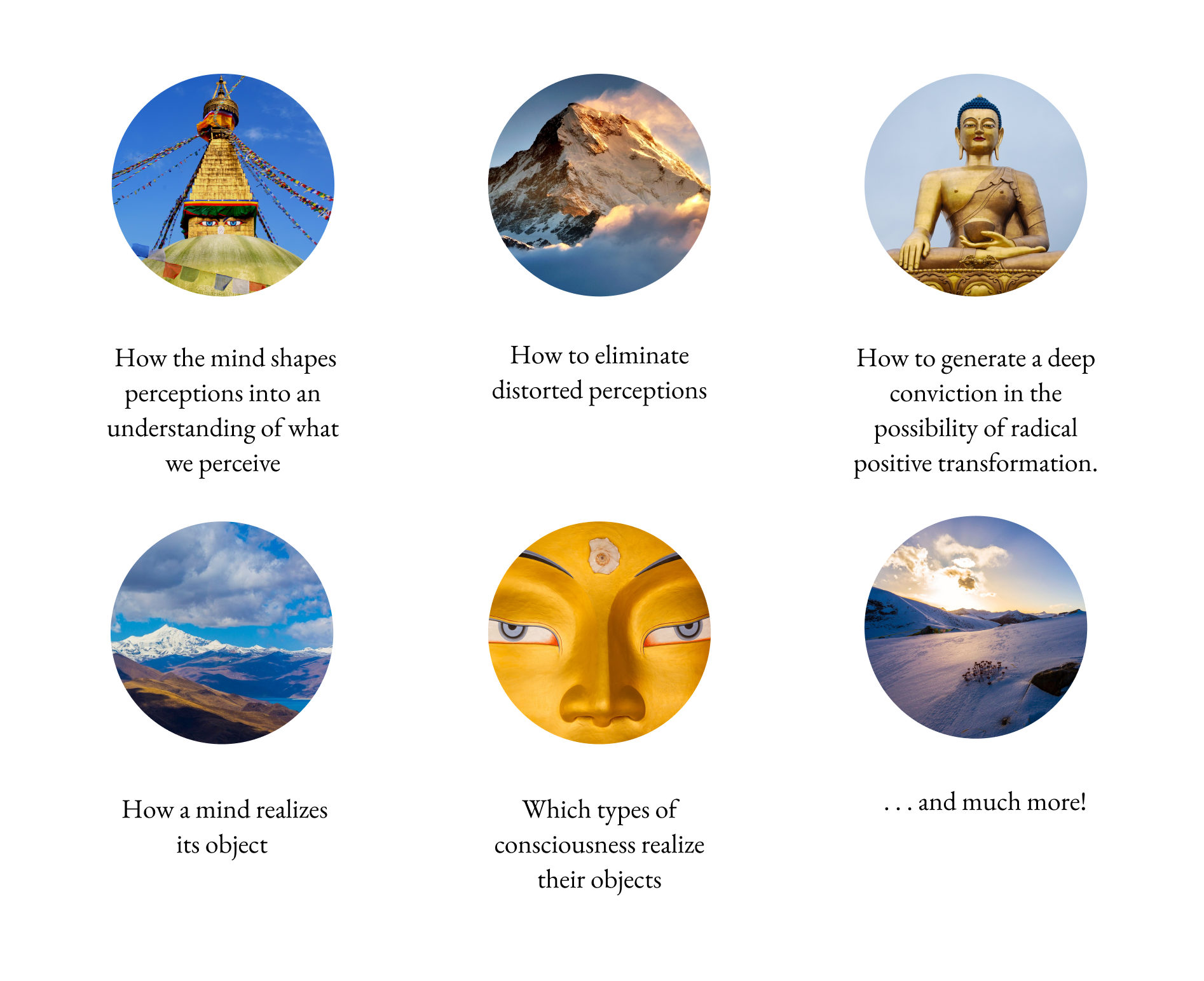
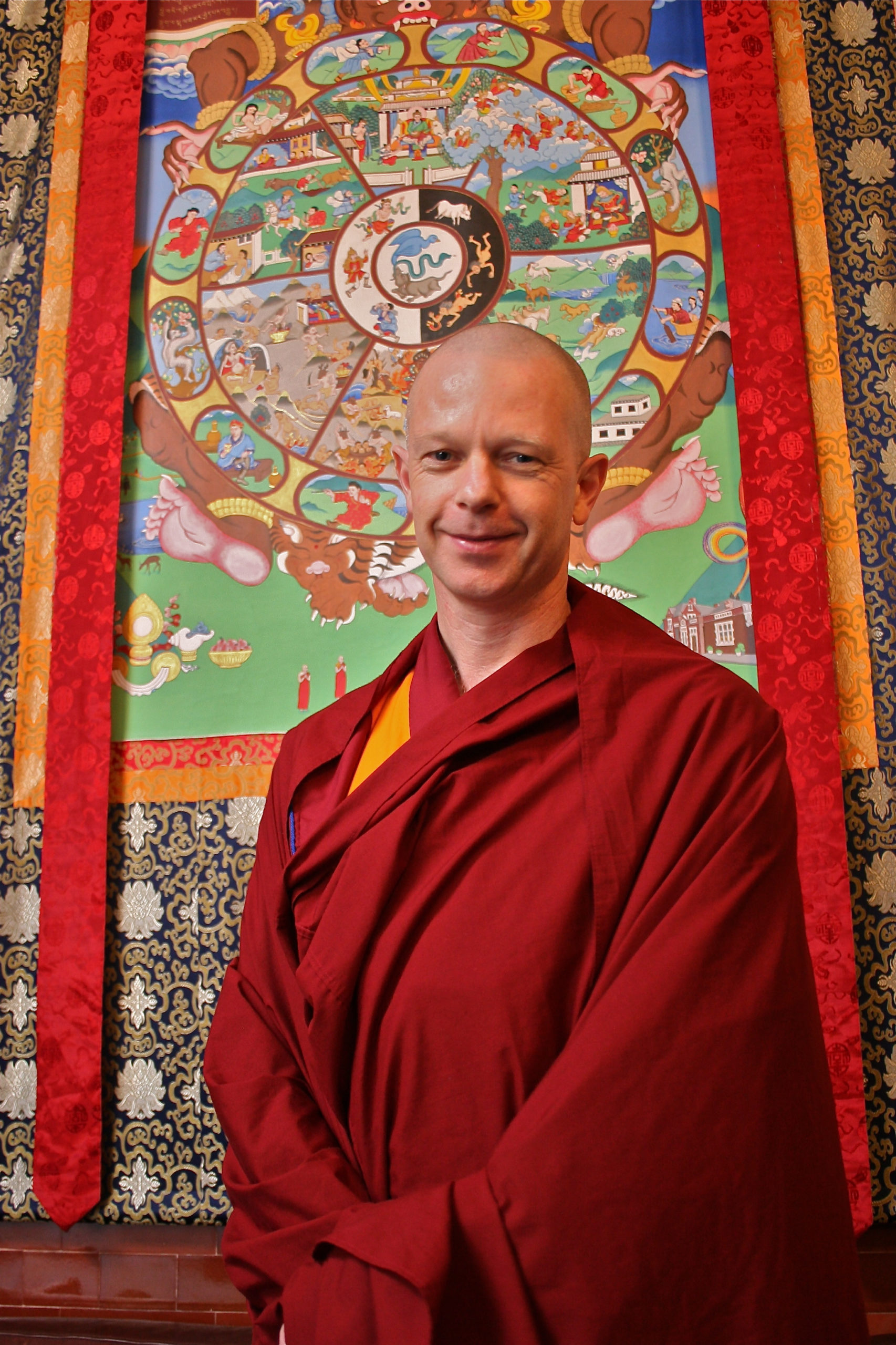
After completing his university studies in Hydrology, Geshe Tenzin Namdak worked as an environmental researcher in the Netherlands. He began studying Buddhism at Maitreya Institute and was eventually ordained by His Holiness the Dalai Lama before completing the 20-year Geshe degree at Sera Jey monastic university in India, as well as the traditional one-year Vajrayana study program at Gyume Tantric College. Currently he is the resident teacher at Jamyang Buddhist Centre, London, and teaches worldwide. As part of The Sera Jey Monastic University Translation Department, Geshe Namdak edited and translated Khedrup Je’s commentary on Dharmakīrti’s Seven Treatises on Valid Cognition, published as Freedom through Correct Knowing.
Wisdom is a 501(c)(3) nonprofit organization. When you purchase from Wisdom or make a donation, you are helping us to continue our mission to make the Dharma as widely available as possible. Thank you!
Image credits: Photos of Geshe Namdak are by Robin Bath









